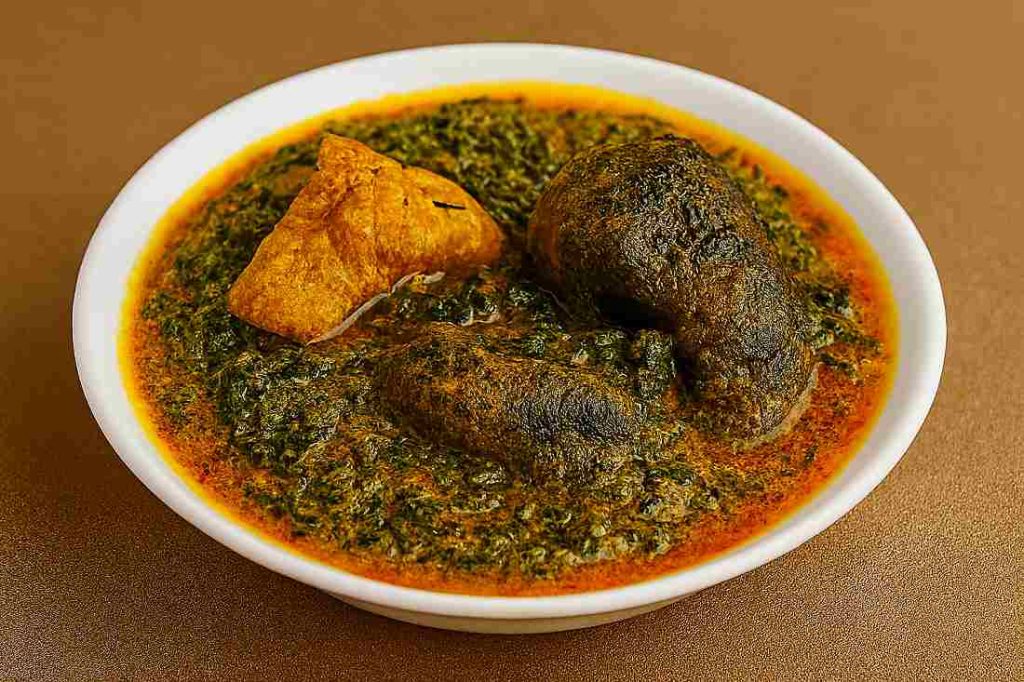by Daniel Nkado

Nigerians are mostly not known to be very flexible when it comes to trying new cuisine. This lack of interest may even be more pronounced in Igbos, especially those who grew up in Igboland or had grown up eating mostly Igbo foods.
The simplest reason for some Igbo people’s lack of flexibility in trying other cuisines may lie in their upbringing and how the Igbo culture handles food matters. Part of this reasoning could also be backed by science.
For some Igbos, every meal represents more than a plate to quench hunger. It’s memories of a thousand emotions!
Daniel Nkado, dnbstories.com.
Food and Emotion
For many Igbo individuals, food goes beyond culture or simply an item to satisfy hunger. It represents a big part of the individual’s unique well-being, with a strong association to each person’s psychology and biology.
From leaving breastmilk, the Igbo child is placed on a well-structured path of what could be best described as mindful taste training. By feeding bits of different foods, each baby is given this choice at a very tender age to choose the kind of foods they like or gravitate towards (De Cosmi et al., 2017)2.
These elementary choices help the household to establish at such an early age what the baby likes and does not. Also, what can be managed and what will be spit out always. And it grows from there. The elders know love does not always happen at the first taste, so even “spit-outs” are retried over and over until a full confirmation is drawn.
Remember, every baby born represents bits and pieces of multiple generations and ancestors from the past (Arzate-Mejía & Mansuy, 2022)1. And this time again, the baby’s system is already recording. Remembering. Adjusting. Adapting. This is the biology bit.
Every process has meaning
As the child grows, so does their culinary role – from tasting and devouring, they become involved in some of the other processes that bring each cuisine to life. The reason Igbo cuisine is so rich and complex often lies in the intricate and carefully supervised processes through which they are made.
To make the bitter leaf soup, the leaves are collected very early in the morning, mildly sunned and then washed for up to 2 hours – about 4 to 5 times, spending at least 30 minutes in each cycle. An elderly member of the family is given some to taste to confirm that the bitterness is gone. If they nod, good news. If they shake their head, it means back to work.
Some soups require a different kind of meat, or the same meat processed differently. You can use smoked fish for Okro, but for the Oha soup, dried fish. To make fufu the Igbo way, cassavas are harvested, soaked for days, and the fermented tubers are then hand-processed to separate the chaff and food. A very tedious chore.

There is no “whip-in/whip-out” Igbo food. Soups take hours to make. For some, it’s not just the time. A lot of physical energy is also involved. Before blenders and food processors, there was usually a lot of pounding. Even now, some households still keep a mortar and pestle, and many families still prefer doing things the old way.
Cooking is bonding
It’s not just the cooking and the food – it’s also the bonding, the checking and confirming and smiling and applauding, the anticipation, the salivation, the sounds, aromas and unique flavours brought on by super-rare herbs and spices. Ogiri, ehuru, okpei, uziza, and many others – the body shakes the first time it feels these aromas.
As the child grows, they are trusted with more and more responsibilities with food. And one day, they will make their first soup. Papa and Mama might not be impressed the first time, or ever even, but the child learns their strength and position in the kitchen. For there’s something every child knows how to make very well.
And one day, Papa, in his dying bed, would say: “If Nnanna is here, there wouldn’t have been any lumps in this fufu.”
And everyone will reassure him: “He will soon be here!”
“If Ogechi is here, she would have made me my favourite nsala soup!”
“She is on her way, nna anyi!”
Every meal represents more than a plate to quench hunger. It’s memories of a thousand emotions, moments of love after anger, success following frustration, moments of doubt and pleasant surprise.
For many Igbo individuals, this connection and experiences weave an intricate network of charm—bringing taste, biology and psychology to the same table.
When we are sad or sick, Mama would ask, “Gini ka ichoro iri, gwam – What do you want to eat, tell me!” The Igbo person never forgets whoever makes them their favourite meal when they are down.
Our mind is everything. It controls every process, including digestion and the absorption of nutrients. Your body knows and remembers your first proteins for making you grow, your first sugars for supplying you with energy (Nansel et al., 2024)3.
Any sudden or dramatic change in diet could look like taking out a code from an already working algorithm. It’s so beyond taste. It’s about safety. Smooth and comfortable digestion and the efficient uptake of nutrients—the body accepting and confirming it has truly been fed!
And for some, this structure is so rigid that any small alteration can bring serious consequences!
Many Igbo people with this unique coding might occasionally try out a new cuisine and actually enjoy it, indulge in it even, but nothing will replace the connection to the local cuisine. And one day, the body will signal it has missed a particular flavour so much, and you must do everything to satisfy that craving.
***
Daniel Nkado is a Nigerian writer and storyteller. You can get some of his books on Amazon.
List of references/Citations used in the article
¹ Arzate-Mejía, R. G., & Mansuy, I. M. (2022). Epigenetic inheritance: Impact for biology and society—recent progress, current questions and future challenges. Environmental Epigenetics, 8(1), Article dvac021. https://doi.org/10.1093/eep/dvac021
² De Cosmi, V., Scaglioni, S., & Agostoni, C. (2017). Early taste experiences and later food choices. Nutrients, 9(2), Article 107. https://doi.org/10.3390/nu9020107
³ Nansel, T. R., Channell-Doig, A., Lipsky, L. M., Borradaile, K. E., Scherer, G., & Siega-Riz, A. M. (2024). Prospective associations of infant food exposures and appetitive traits with early childhood diet quality. International Journal of Behavioral Nutrition and Physical Activity, 21, Article 143. https://doi.org/10.1186/s12966-024-01686-4



african food is a cult